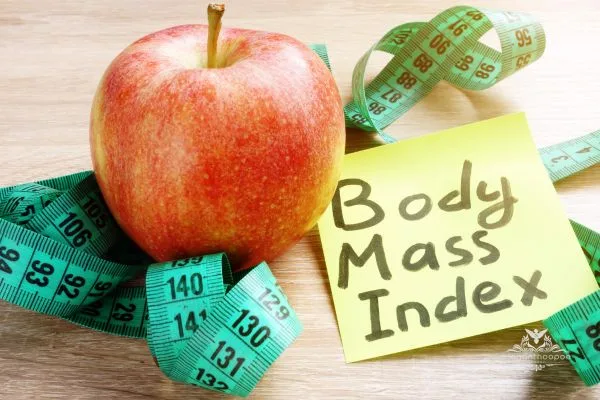Maintaining a healthy weight is an essential aspect of overall well-being. However, determining what qualifies as an “ideal weight” can be challenging, as it depends on several factors, including your height, body composition, and overall health. This guide will walk you through the concept of ideal weight, how it relates to your height, and how to use a height-weight calculator to identify a healthy weight range for yourself.
What Is the Ideal Weight?
The term “ideal weight” refers to a weight range that is considered healthy for a specific height. It is not a one-size-fits-all number but rather a range determined by factors like body mass index (BMI), age, gender, and muscle mass. The goal of identifying an ideal weight is to ensure that your weight supports your overall health, minimizes the risk of chronic diseases, and promotes physical and mental well-being.
Importance of Ideal Weight
Reduced Health Risks: Maintaining a healthy weight reduces the risk of chronic illnesses such as heart disease, diabetes, and hypertension.
Improved Mobility: Carrying extra weight can put strain on your joints and muscles, leading to discomfort and mobility issues.
Mental Well-Being: Achieving a weight that aligns with your height can boost self-esteem and body confidence.
How Height Affects Your Ideal Weight
Height plays a significant role in determining your healthy weight range. Taller individuals naturally have larger frames, which means they will likely weigh more than shorter individuals. Likewise, shorter people will have a lower healthy weight range.
A common method to determine the ideal weight for your height is through the Body Mass Index (BMI), which uses your height and weight to calculate whether you fall within a healthy range. While BMI is a useful tool, it’s not perfect, as it does not account for factors like muscle mass, bone density, or fat distribution.
Using a Height-Weight Calculator
A height-weight calculator is a simple tool designed to help you determine your ideal weight based on your height. This calculator uses BMI as a reference and provides a weight range that is considered healthy. Here’s how it works:
Input Your Height: Enter your height in centimeters, feet, or inches.
Choose Your Parameters: Some calculators allow you to specify gender or age for more tailored results.
Review Your Results: The calculator will provide a weight range that aligns with your height.
Example of BMI Ranges
BMI is calculated using this formula:
BMI = (Weight in kilograms) / (Height in meters × Height in meters)
For example, if your height is 5’6″ (167.6 cm), a BMI of 18.5–24.9 would correspond to a weight range of approximately 115–154 pounds (52–70 kg).
Factors Affecting Your Ideal Weight
While height is the primary determinant in these calculations, other factors can influence your ideal weight:
1. Body Composition
Muscle weighs more than fat, so individuals with higher muscle mass might weigh more even if they have a healthy body composition.
2. Age
As you age, your muscle mass tends to decrease, and fat redistribution may occur. This can affect your weight range.
3. Gender
Men and women have different body compositions—men typically have more muscle mass, while women tend to have a higher fat percentage.
4. Bone Density
People with denser bones may weigh more without being overweight.
5. Genetics
Your genetic makeup can play a role in determining your body shape, size, and weight tendencies.
Tips for Achieving and Maintaining Your Ideal Weight
Whether you are aiming to lose, gain, or maintain your weight, here are some effective strategies to consider:
1. Balanced Diet
Focus on nutrient-dense foods like fruits, vegetables, lean proteins, whole grains, and healthy fats. Avoid excessive processed foods and sugar.
2. Regular Exercise
Incorporate a mix of cardiovascular exercises, strength training, and flexibility exercises to maintain a healthy weight and improve overall fitness.
3. Hydration
Drink enough water throughout the day to support metabolism and prevent overeating.
4. Consistent Sleep Schedule
Getting 7–9 hours of quality sleep each night is crucial for weight management, as poor sleep can lead to hormonal imbalances that affect appetite and metabolism.
5. Monitor Progress
Regularly check your weight and BMI, but don’t become overly fixated on the numbers. Use them as a guideline, not a strict rule.
When to Consult a Professional
If you’re unsure about your ideal weight or find it difficult to achieve your health goals, consider consulting a healthcare professional. A doctor, dietitian, or fitness expert can provide personalized advice based on your unique circumstances, including health conditions, lifestyle, and goals.
Limitations of Height-Weight Calculators
While height-weight calculators and BMI are helpful tools, they are not foolproof. Here are some limitations to keep in mind:
Does Not Account for Muscle Mass: Athletes and bodybuilders might fall into the “overweight” or “obese” category due to their muscle mass, even with low body fat.
Ignores Fat Distribution: Fat stored around the abdomen poses a greater health risk than fat stored in the hips or thighs, but BMI does not consider this.
Not Suitable for All Populations: These calculators may not be accurate for children, pregnant women, or elderly individuals.
Conclusion
Determining your ideal weight for your height is a valuable first step toward maintaining a healthy lifestyle. By using a height-weight calculator as a guideline and considering factors like body composition, age, and gender, you can identify a weight range that supports your health and fitness goals. Remember, numbers on a scale are not the sole indicator of health—focus on building sustainable habits that promote overall well-being.
Stay consistent, listen to your body, and seek professional advice when needed. Your health journey is unique, and achieving your ideal weight is just one part of the bigger picture!




